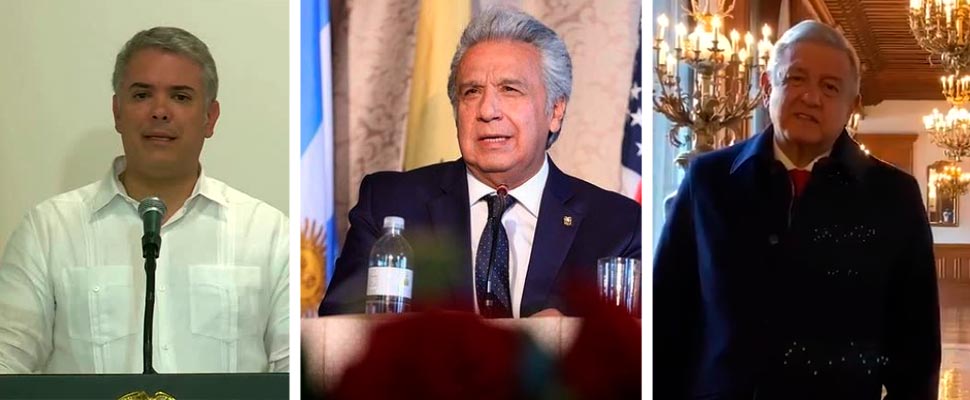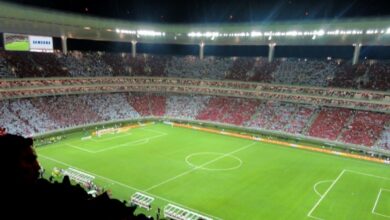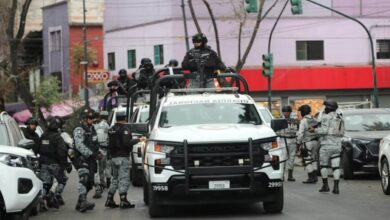What did Latin American presidents study?
From rulers without studies to some with master's degrees, this is what the Latin American leaders studied.

We will tell you what the current presidents of Latin American countries studied. Photo: Reuters, IG-leninmorenog, IG-lopezobrador
LatinAmerican Post | Luis Hernández Liborio
Listen to this article
Leer en español: El difícil arte de gobernar: ¿Qué estudiaron los presidentes latinoamericanos?
Latin America can be divided between governments of the left and of the right, between thriving and stagnant economies, between democracies and dictatorships, but also through their leaders and their professions.
Presidents with the least education
In theory, the ruler's schooling should not define the success or failure of a government, in practice, things seem to be different. Brazil, Nicaragua, and Venezuela have presidents without higher-level academic training, and although the three countries have different contexts, they do coincide in their criticisms of the way their leaders govern. Jair Bolsonaro is a retired military man, he studied at the Agulhas Negras Military Academy, where he trained as a paratrooper and also in physical education, in addition to being a diver, according to UOL news.
Daniel Ortega abandoned his law studies at the Central American University of Managua to join the Sandinista National Liberation Front, a position from which he overthrew the Somoza dictatorship. Finally, Nicolás Maduro has no professional training. From a young age, he joined the leftist movements of his country without entering university. All three have been criticized for their attacks on the opposition, the poor economic performance of their countries, the political affiliation of the extreme right in the case of Bolsonaro, and the extreme left in the case of Ortega and Maduro. Also, in the case of the latter, there are accusations of fraud.
The lawyers
Four presidents hold the title of lawyers: Alberto Fernández from Argentina, Iván Duque from Colombia, Juan Orlando Hernández from Honduras and Luis Lacalle from Uruguay. The Argentine president is the only one on the left, he has been characterized by actions such as judicial reform and especially in human rights, he has created a Ministry of State on diversity and gender, in addition to the controversial legalization of abortion.
Their counterparts in Colombia, Honduras, and Uruguay are in the sphere of the right. Duque is the most prepared of the four, he is a lawyer from the Sergio Arboleda University, in addition to having two master's degrees: in Public Policy Management and in International Economic Law, both carried out in the United States, according to information from the University of La Sabana.
You can also read: The trend that could favor Keiko Fujimori
Economists and businessmen
The Ecuadorian Lenín Moreno is an administrator, his profession is observed in the economic and administrative policy of his government. Although politically he comes from within the left, over time (and already as president) he has moved remarkably towards the right, including neoliberal policies such as the privatization of companies, reduction of public spending, and a new relationship with the International Monetary Fund and the World Bank.
In Bolivia Luis Arce Catacora lived a similar situation to Moreno, served in a previous government (that of Evo Morales), and became his successor. The difference is that Arce has not distanced himself from Morales. Arce is an economist with a master's degree from the University of Warwick in the UK. He has not radically transformed Morales' economic policy because he himself was responsible for it with good results.
Luis Abinader from the Dominican Republic is a billionaire economist and businessman. His rapprochement with the private sector is evident, but it is also characterized by his social policy that integrates subsidies and loans with low rates to reactivate the economy, according to Expansión magazine, which is why more of a centrist. For his part, Nayib Bukele of El Salvador has transformed his country's politics, in part thanks to the impetus that being a young ruler has given him. He did not finish his career in Legal Sciences Studies, however, his pragmatic policy on security and corruption issues shows his skills as president of various companies. The list of entrepreneurs is complemented by Mario Abdo Benítez from Paraguay who is a marketer and Laurentino Cortizo from Panama who is an administrator.
Three engineers and a doctor
The trend in Latin American rulers is towards the social, economic, and administrative sciences. However, these four presidents break the pattern. In Chile, Piñera has a solid academic background, he is a business engineer with a master's degree in economics from Harvard and one of the richest businessmen in Chile. Due to this, he has been accused of conflicts of interest. Miguel Díaz-Canel from Cuba is also an electronic engineer. Francisco Sagasti from Peru is an industrial engineer, and Alejandro Giammattei from Guatemala is a surgeon. According to the Diario de América, the latter has created health insurance for 2.6 million children, as a result of his training as a doctor and also because he suffered from polio in his childhood.
The "professional" politicians
Finally, three Latin American countries have a president trained exclusively in political science. In Costa Rica, Carlos Alvarado Quesada is considered to be center-left and is in a certain way a figure similar to that of Bukele in El Salvador, a young man who has taken the reins of his country and who tries to transform politics.
Claude Joseph, Prime Minister of Haiti, has a Ph.D. in Public Policy acquired in the United States and has been in office for less than a month. For his part, López Obrador studied Political Science at the National Autonomous University of Mexico. His left-wing affiliation, his decisions on economic matters (such as the cancellation of the New Mexico City Airport) and his welfare policy have made him the object of criticism. His academic training is reflected in his published books that defend his economic and social policies, in addition to criticizing neoliberalism and corruption in Mexico.





